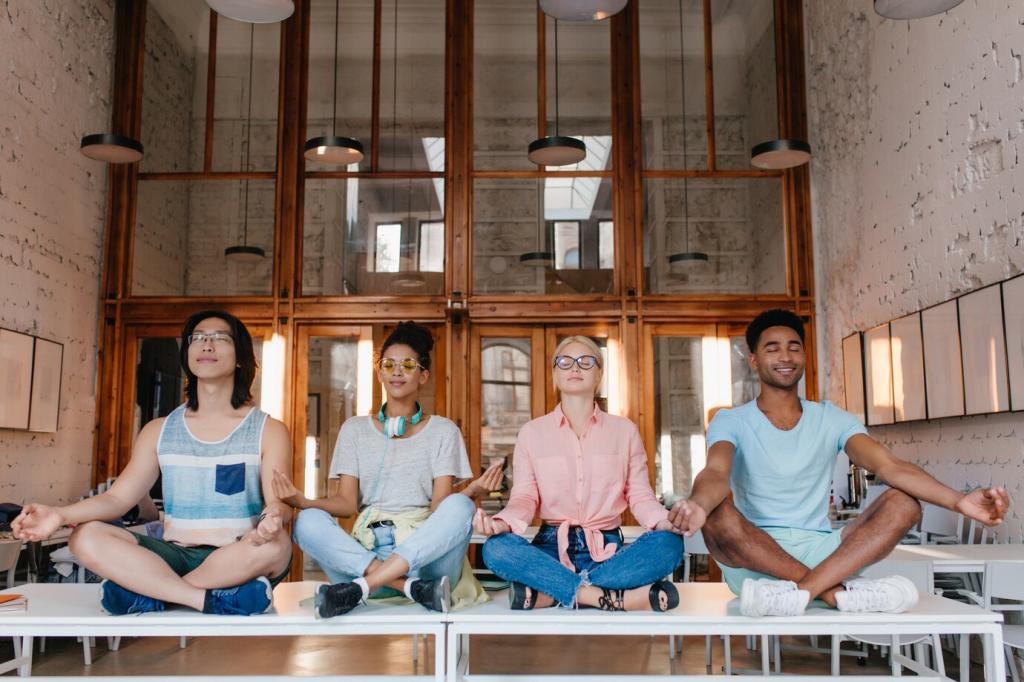What to Expect at Your First Yoga Retreat: A Gentle Guide
Chosen theme: What to Expect at Your First Yoga Retreat. Step into a welcoming space where curiosity is celebrated and rest is honored. In this guide, you will discover how your days may unfold, what practices you will meet, and how to feel at ease from check-in to closing circle. Join the conversation and subscribe for fresh insights crafted for first-time retreat-goers.
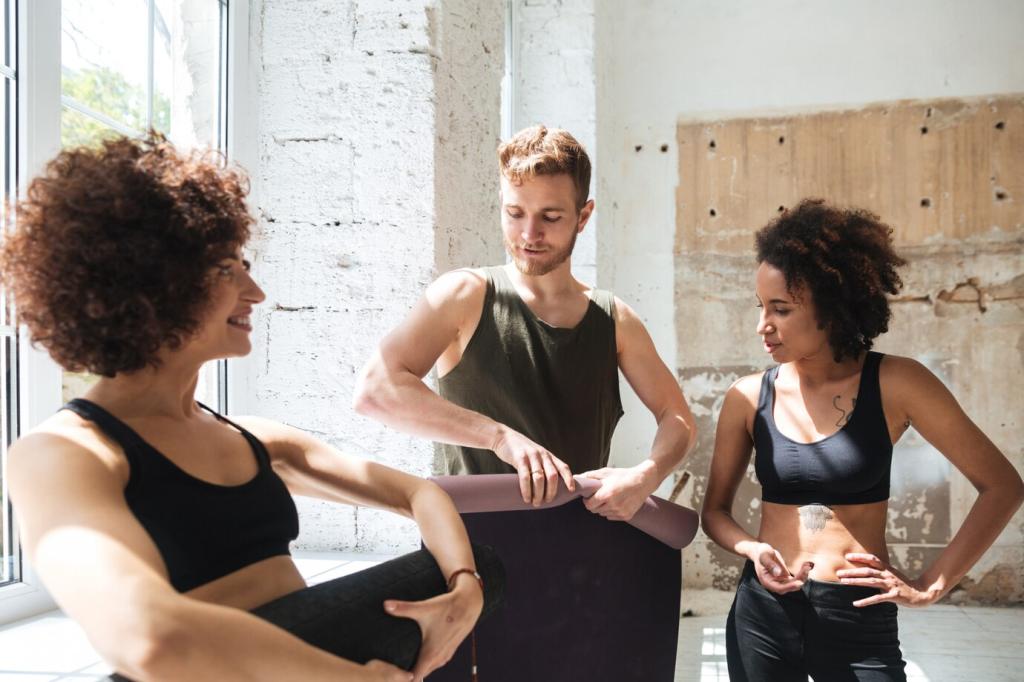
Arrival and First Impressions
Navigating Check-In with Confidence
You will likely be greeted by a host who shares your room, schedule, and a brief orientation. Expect a calm pace, tea waiting nearby, and clear directions on where to place your bag and mat. Ask questions early, introduce yourself gently, and notice how your breath slows as the retreat energy welcomes you.
Meeting Your Cohort Kindly
Your fellow attendees are often a mix of beginners and seasoned practitioners. Expect name circles, a few icebreakers, and soft laughter that eases nerves. Approach conversations with curiosity, not comparison. Share what drew you to this experience, invite others to do the same, and discover common ground that supports your practice.
Setting Intentions Without Pressure
Many retreats begin with a simple intention-setting ritual. You are not required to have a grand goal; a single word like ease or clarity works beautifully. Write it in a journal, keep it on a note by your mat, and revisit it as your retreat unfolds. Comment below with your word to inspire someone else.
Daily Schedule and Flow
Mornings: Breath, Sun, Simplicity
Mornings usually begin with meditation or gentle breathwork before movement, often timed with sunrise or soft daylight. Expect a mindful warm-up, accessible postures, and a closing rest. You will not be rushed. Bring a light layer, sip water, and notice how a slower morning reveals energy you may not know you had.
Afternoons: Learning and Leisure
Afternoons might include workshops on alignment, philosophy, or mindful living, followed by time for reading, journaling, or a nature walk. Expect optional activities rather than obligations. You can attend, nap, or explore. Your first yoga retreat encourages agency and rest, inviting you to choose what truly nourishes you.
Evenings: Reflection and Rest
Evenings often feature restorative classes, quiet reflection, or a candlelit discussion. Expect soothing sequences, longer holds, and supportive props that melt tension. Some retreats observe quiet hours after a certain time. Embrace the hush. Let your body integrate the day. Share your favorite evening ritual with our community.
Asana Variety Without Intimidation
You may encounter gentle flow, slow strength, yin, or restorative styles. Teachers typically offer variations that honor different bodies and energy levels. Expect encouragement to pause and rest. Poses are a conversation, not a test. Your first yoga retreat is about presence, not performance, and curiosity is your most supportive posture.
Meditation You Can Actually Do
Meditation on retreat is accessible and guided. You might try breath counting, body scans, or visualizations. Sessions are short enough to sustain focus without overwhelm. Expect kind reminders that wandering minds are normal. If sitting is uncomfortable, try a chair or bolster. Comment with your favorite beginner-friendly meditation approach.
Breathwork That Grounds You
Common practices include three-part breathing, box breathing, and gentle lengthening of exhales to calm the nervous system. Instructors will explain benefits and contraindications. Expect to feel steadier and more spacious. Keep a note of what works for you, and revisit these tools when life gets noisy after the retreat.
Food, Nourishment, and Self-Care
Retreat Cuisine Explained
Expect colorful bowls, warm soups, fresh salads, and satisfying proteins, often plant-forward. Menus are usually labeled for allergies. Take what you need without guilt. Eat slowly and notice flavor, texture, and gratitude rising with each bite. If you are unsure about ingredients, ask kindly. This is nourishment, not a contest.
Hydration and Herbal Support
Retreats often offer infused water, herbal teas, and light electrolytes. Bring a bottle and sip consistently, especially after breathwork and heat-building classes. Simple habits like hydration reduce headaches and fatigue. Gentle teas like chamomile or peppermint ease digestion. Share your go-to hydration tricks to support other newcomers.
Rest, Massage, and Gentle Recovery
Your body may feel tender in new places. Respect that. Use props, soak in Epsom salts if available, and consider a short massage if offered. Even ten minutes with legs up the wall can restore clarity. Rest is a practice too. Let your retreat teach you that recovery is wisdom, not weakness.
Silent Spaces and Shared Quiet
Some retreats designate quiet zones or silent mornings. This is not about being unfriendly; it is about deepening awareness. Wear headphones if helpful, whisper around rest areas, and save long chats for community spaces. Discover how shared silence becomes a gentle bond, easing you into stillness without social pressure.
Consent in Hands-On Assists
Expect teachers to request consent before offering physical adjustments, often with cards or verbal check-ins. You can say yes, no, or change your mind anytime. Your comfort comes first. Consent allows touch to be supportive rather than surprising. Share how you prefer to receive guidance so teachers can meet you kindly.
Honoring Personal Energy and Needs
Listen to your body and step out when needed. You can rest in child’s pose, lie down, or simply breathe. Communicate with teachers about injuries or fatigue. This practice is yours. Boundaries are not barriers; they are bridges to sustainable presence. Tell us the boundary you will practice on your retreat.
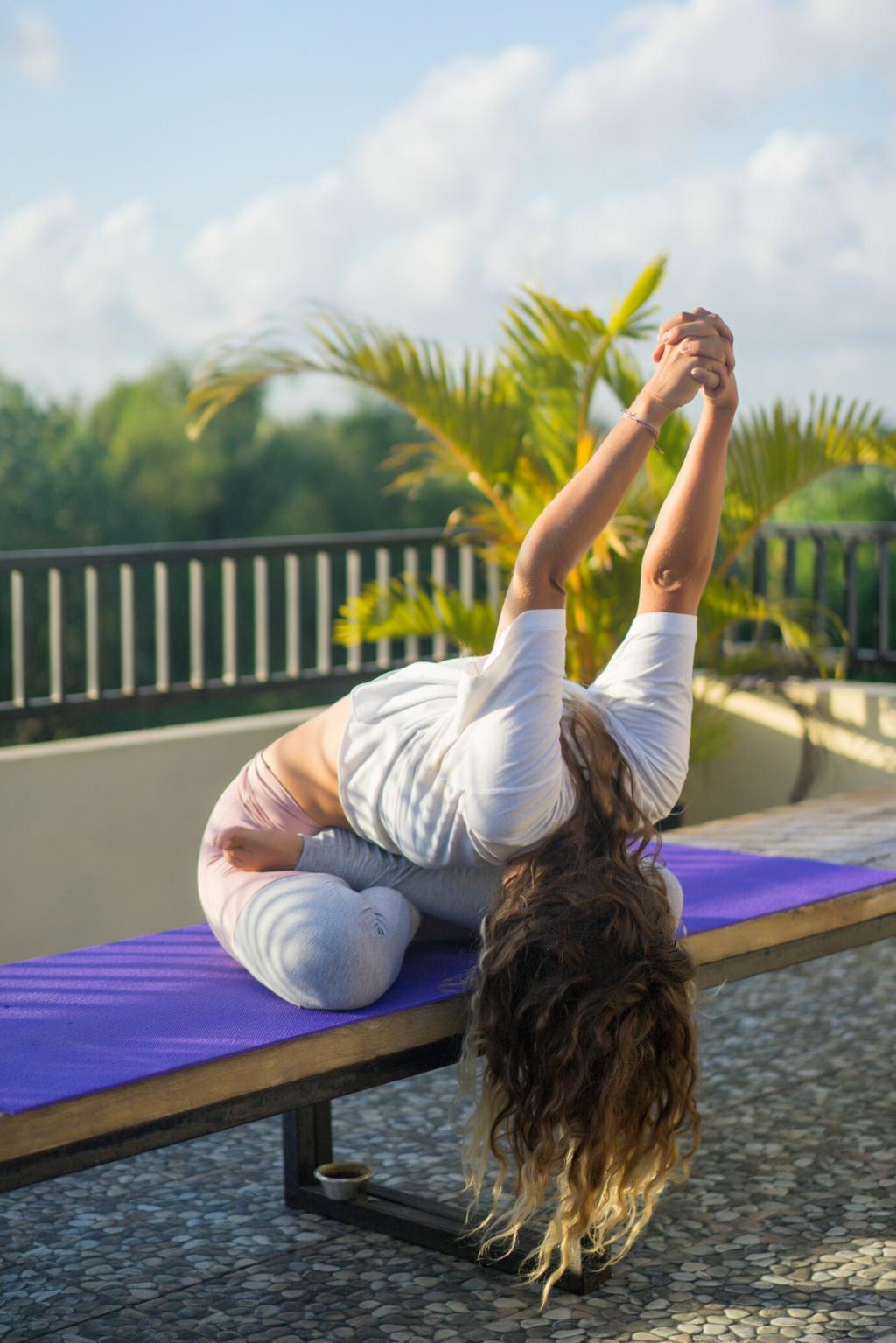
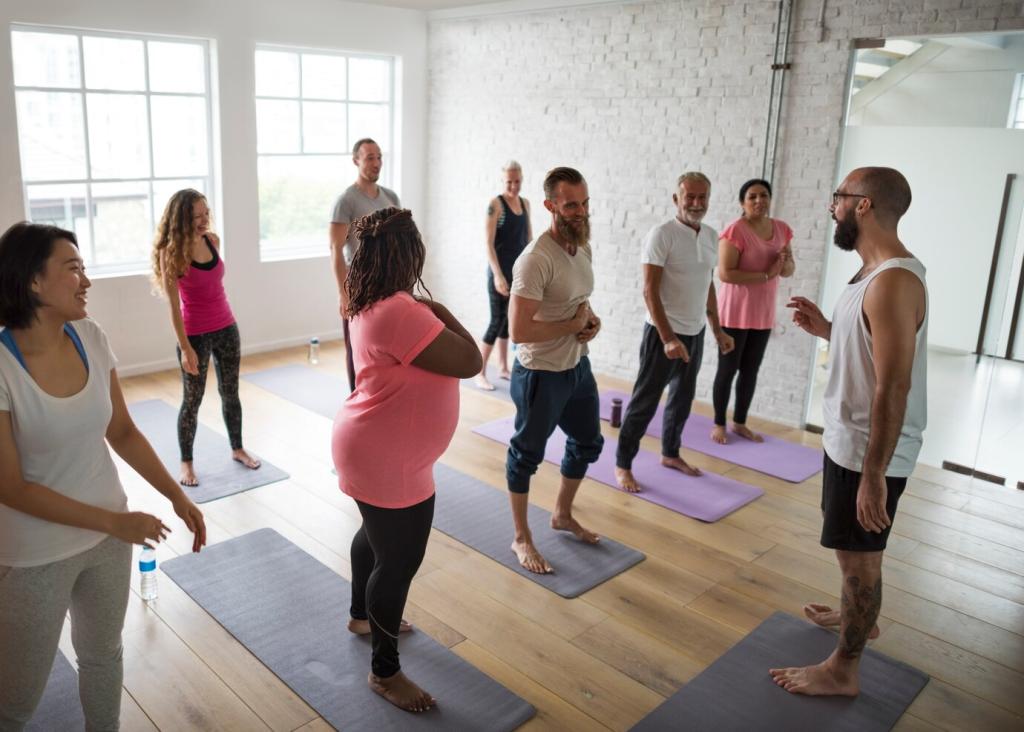
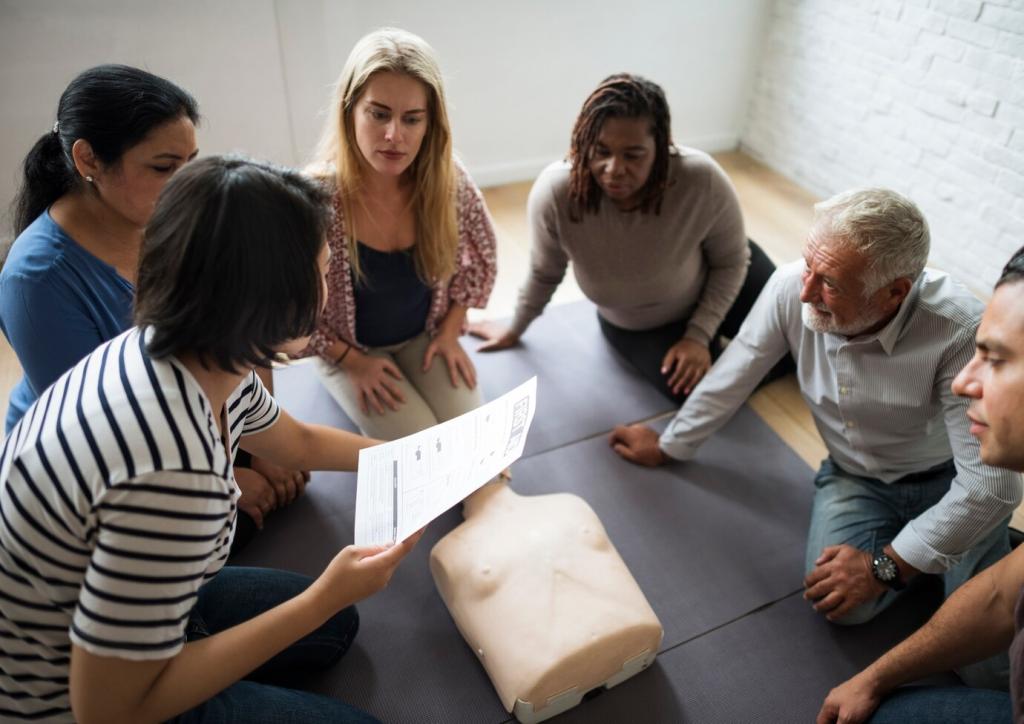
Packing and Practicalities
If the retreat provides mats and props, you may still bring your favorites for familiarity. A comfortable mat, two blocks, a strap, and a light blanket often cover essentials. Add a small eye pillow for rest. Familiar gear reduces anxiety and helps your body trust the space more quickly.
Packing and Practicalities
Choose breathable layers, including a warm top for early mornings and cooler evenings. Pack socks, a lightweight scarf, and a rain layer if the location is outdoorsy. Avoid restrictive outfits. You will move, sit, and rest. Comfort builds confidence, which supports every aspect of your first yoga retreat experience.
Emotions, Breakthroughs, and Integration
Emotions may arrive unexpectedly during meditation or savasana. Let them. Your teachers have seen this before and will hold the space. You do not have to explain or fix anything. Breathe, notice, and journal. This tenderness is data, not drama, guiding you toward the support you truly need.
Making It Your Own and Staying Connected
Skip a workshop, take a walk, or nap between sessions if your body asks. Trust your energy. Teachers appreciate honest communication, and your learning deepens when you honor capacity. Your first yoga retreat thrives when you move at the speed of kindness toward yourself, not the speed of expectation.
